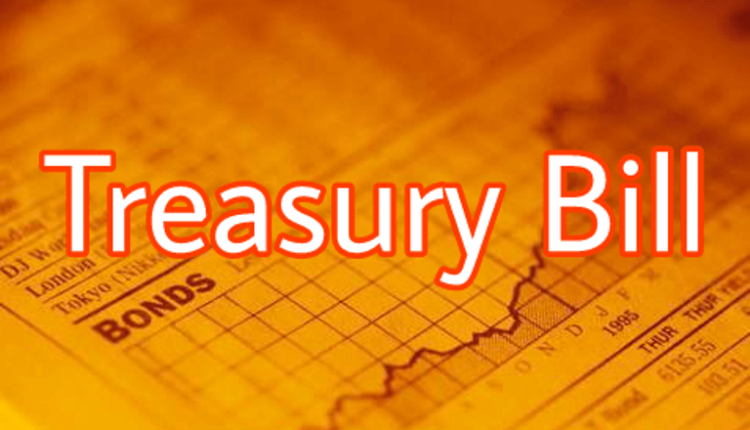It seems the policy rate hike is having an impact in the short end of the market as investor interest in Treasury bills continue to soar, with many investors taking advantage of rising interest rates in the Treasury market.
The bills, carrying a maturity of 91 days and 182 days, are issued by the Central Bank on behalf of the government hence, the Bank of Ghana, which manages the government’s borrowing programme accepted all bids for the 91/182-Day bills and 364- day notes.
According to the latest auction by the Bank of Ghana (BoG), government secured GH¢1.83bn as T-bills auction was oversubscribed for the 11th consecutive week by 56 per cent, largely due to the high yields.
Specifically, GH¢1,391.21 million was tendered for the 91-day treasury bill and all that amount was accepted by the government. The three-month bill was auctioned at 28.6142 percent denoting a marginal decrease in the interest rate for the previous auction day. The lowest rate for which investors were willing to trade for the bill was 27.7160 percent and the highest those subscribers were willing to trade for the bill was 29.0000 percent.
For the six-month bill, GH¢378.96 million was tendered for the bill and all those amounts were accepted. The six-month bill was auctioned at 29.9415 percent of its face value which is good news for investors as it bettered its previous rate. The lowest rate at which investors were willing to trade for the bill was 29.2264 percent, while the highest rate at which they were willing to trade was 30.1496 percent.
The One Year Note
The 364-day T-Bill had the lowest subscription and probably because of the length of time involved for investors to receive their money. GH¢60.89 million was tendered for the bill and GH¢56.04 million of them were accepted. The 1-year bill was auctioned for 16.36 percent of its face value. The lowest rate at which investors were willing to trade for the bill was 29.5227 percent, while the highest rate at which they were willing to trade was 30.0390 percent.
Interest rates on the yield curve continued to rise as investors focused on the short-term securities in the primary market for re-pricing benefits.
However, the yields are still lower than the current inflation rate of 31.7 per cent, indicating that the real return on Treasury securities for investors is still negative.
Meanwhile, the government secured ¢1.83 billion from the sale of the short term securities, against a target of ¢1.16 billion.
The money markets has indeed entered new phase in an ebullient mood as Investors’ confidence are boosted despite the economic devastation wrought by the coronavirus pandemic and the Russian-Ukraine war.
With the introduction of the recent guidelines to having a well-structured and well-functioning money market aimed at strengthening the primary dealership system, this will help in facilitating the development of the fixed income market and at the same time, creating a stable environment for the Government Securities market in which private sector investors could readily meet their investment needs.
Analysts anticipate that there is the risk of a stronger than expected rise in inflation fueled by unprecedented levels of monetary and fiscal stimulus.


Comments are closed.